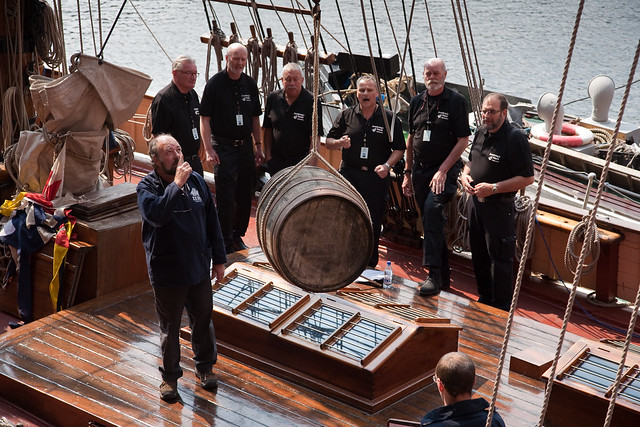Podcast: Play in new window | Download
Adventures in Etymology is a new series on Radio Omniglot that I started in March 2021. Each week I explore the origins of a word and find out which other words it’s related to. I make a short video each Sunday, and thought I’d post the audio and the script here.
On today’s adventure we are following the word shanty down the etymological rabbit hole. Sea shanties seem to be quite popular at the moment, and the word shanty, as in a rhythmical work song original sung by sailors, comes from the French word chantez (sing), the imperative form of the verb chanter (to sing), from the Old French chanter (to pray, sing, retell or recount), from the Latin cantāre (to enchant, bewitch, forwarn, play (music, roles), recite, sing), from canō (I crow, foretell, play, sing, celebrate, chant), from the Proto-Italic *kanō (to sing), from the Proto-Indo-European *keh₂n- (to sing).
Words in many European languages for to sing come from the same root, including cantar (to sing) in Spanish and Portuguese, cantare (to sing) in Italian, canu (to sing) in Welsh and canadh (to sing) in Irish, and such English words as accent, chant, enchant, incantation, recant.
Etymology from: https://en.wiktionary.org/wiki/shanty
Here’s a video I made of this information:
Video made with Doodly – an easy-to-use animated video creator [affiliate link].
I also write about etymology on the Omniglot Blog.
Here are a couple of shanty-like songs I wrote, and a shanty like tune:
You can also listen to this podcast on: Apple Podcasts, Stitcher, TuneIn, Podchaser, PlayerFM or podtail.
If you would like to support this podcast, you can make a donation via PayPal or Patreon, or contribute to Omniglot in other ways.

